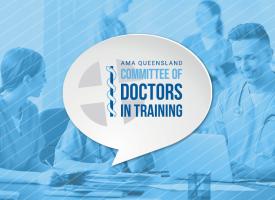AMA plan for general practice
The AMA released a seven-point plan to address the critical problems facing general practice ahead of an emergency GP Summit called by the RACGP in Canberra this week.

The AMA released a seven-point plan to address the critical problems facing general practice ahead of an emergency GP Summit called by the RACGP in Canberra this week.
The AMA’s plan to revitalise general practice was well received at the summit and widely covered in the media. It outlines ways to improve access to GPs and support GPs to provide more and better care for their patients. The seven elements of the plan are:
- encourage more patients to develop a long-term relationship with a local GP or general practice, and provide the foundation for every Australian to have their own ‘medical home’
- support general practices to deliver care afterhours
- expand the number of nurse and allied health services available in general practices
- support GPs to provide care to aged care residents
- support general practices to deliver evidence-based wound care to those with chronic wounds
- evolve the GP training program to make general practice more appealing to the next generation of doctors
- support GPs to spend more time with patients and improve the indexation of Medicare to better reflect the rising costs of providing high-quality medical care and running a medical practice.
In a press conference launching the plan, AMA President Professor Steve Robson told media there were major stressors on the financial viability of general practice, but if the AMA’s plan were followed, GPs could keep their doors open, provide the services Australians expect from them and ensure general practice is an attractive career option for young doctors.
“A restructuring of the way general practice is funded is absolutely critical at the moment. We know that $750 million has been committed over the next four years and we see that as a down payment on ensuring the viability and particularly the financial viability of practices moving forward. But an enormous amount more is needed if we're going to keep the system that Australians have come to expect for their healthcare.
“It's absolutely critical to understand that general practice spending is an investment and not a cost. And if we invest in general practice, it will help ease the hospital logjam and the enormous pressures on public hospitals by keeping Australians healthy and keeping them out of hospital,” Professor Robson said.
The Australian newspaper provided detailed coverage of the plan, quoting Professor Robson that Medicare settings are outdated for the type of patient GPs now commonly see.
“The fact GPs would get the same money if they spend six or 19 minutes with a patient shows there is a financial incentive for short visits and in the current environment when people have multiple issues and with Covid, there is a lot of catch up to do.”
Speaking on ABC News Radio, AMA Vice President Dr Danielle McMullen told Thomas Oriti successive governments had underfunded general practice which contributed to fewer medical graduates choosing to become GPs.
“We need to really work hard to turn that around, because we know that GPs really love the work they do and the rewarding nature of their work, but there is this culture in medical training and across community of ‘just a GP’ and it won’t take just financial investment, but also changes to the way we do medical training and the exposure trainee doctors get to general practice because most of the training for doctors is undertaken in hospitals at the moment,” Dr McMullen said.
Professor Robson told ABC Radio’s flagship lunchtime program, The World Today, doctors need to be funded to see patients out of hours and in aged care settings.
“If we invest in general practice, it will ease the logjam in our public hospitals by keeping Australians healthy and out of hospital. Funding more nurses at GP Practices would also make a difference. Now is the time to change the financial funding models to make general practice financially sustainable in this country and ensure doctors are at the peak of productivity.”
Sky News also spoke to both Professor Robson and Dr McMullen on the subject, with the Vice President and Sydney GP telling Ashleigh Gillon doctors have seen a huge increase in mental health and chronic disease patients which take much longer to unpack to provide appropriate comprehensive care.
Further details of the AMA’s plan are found in its campaign to Modernise Medicare.



